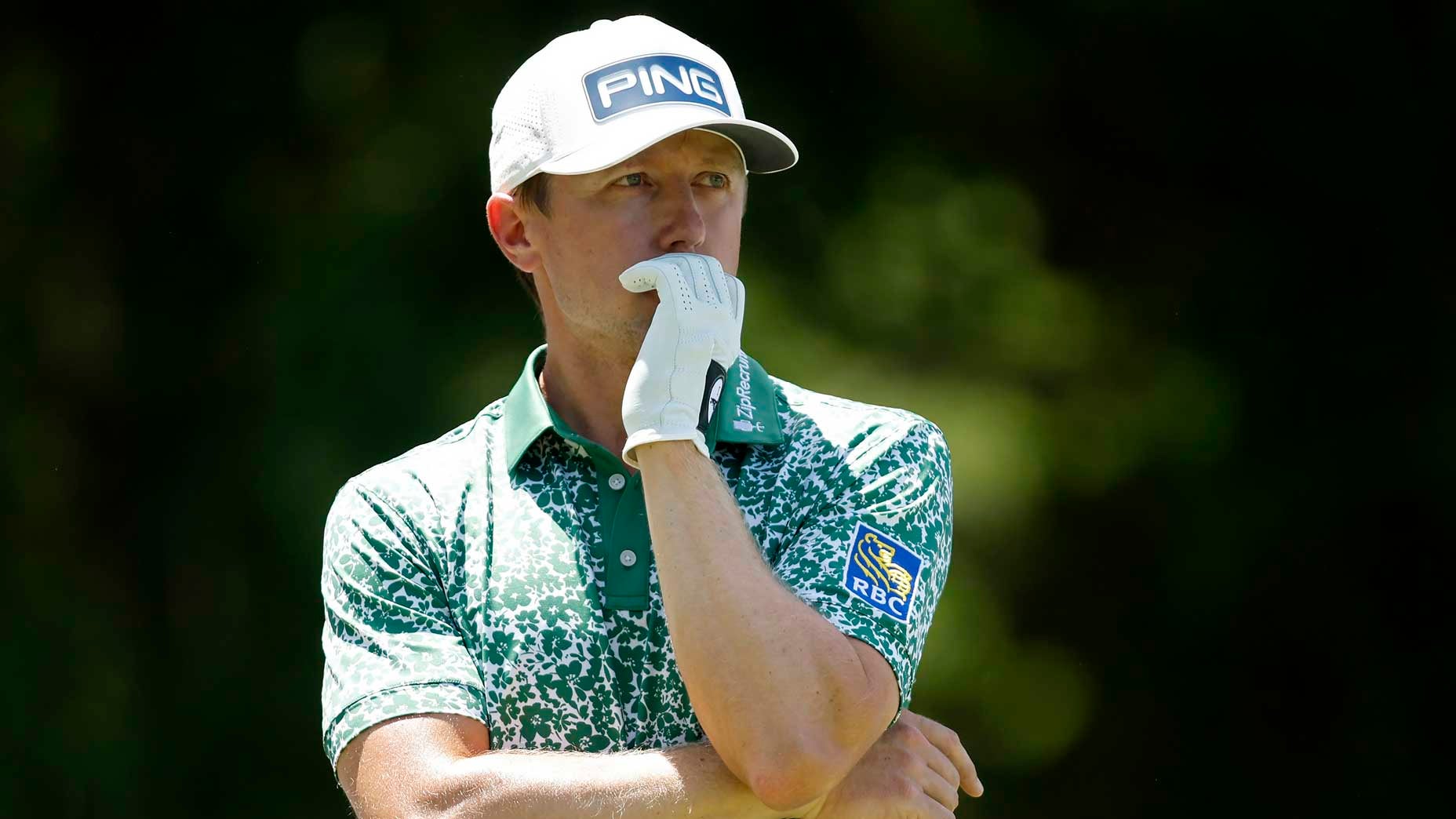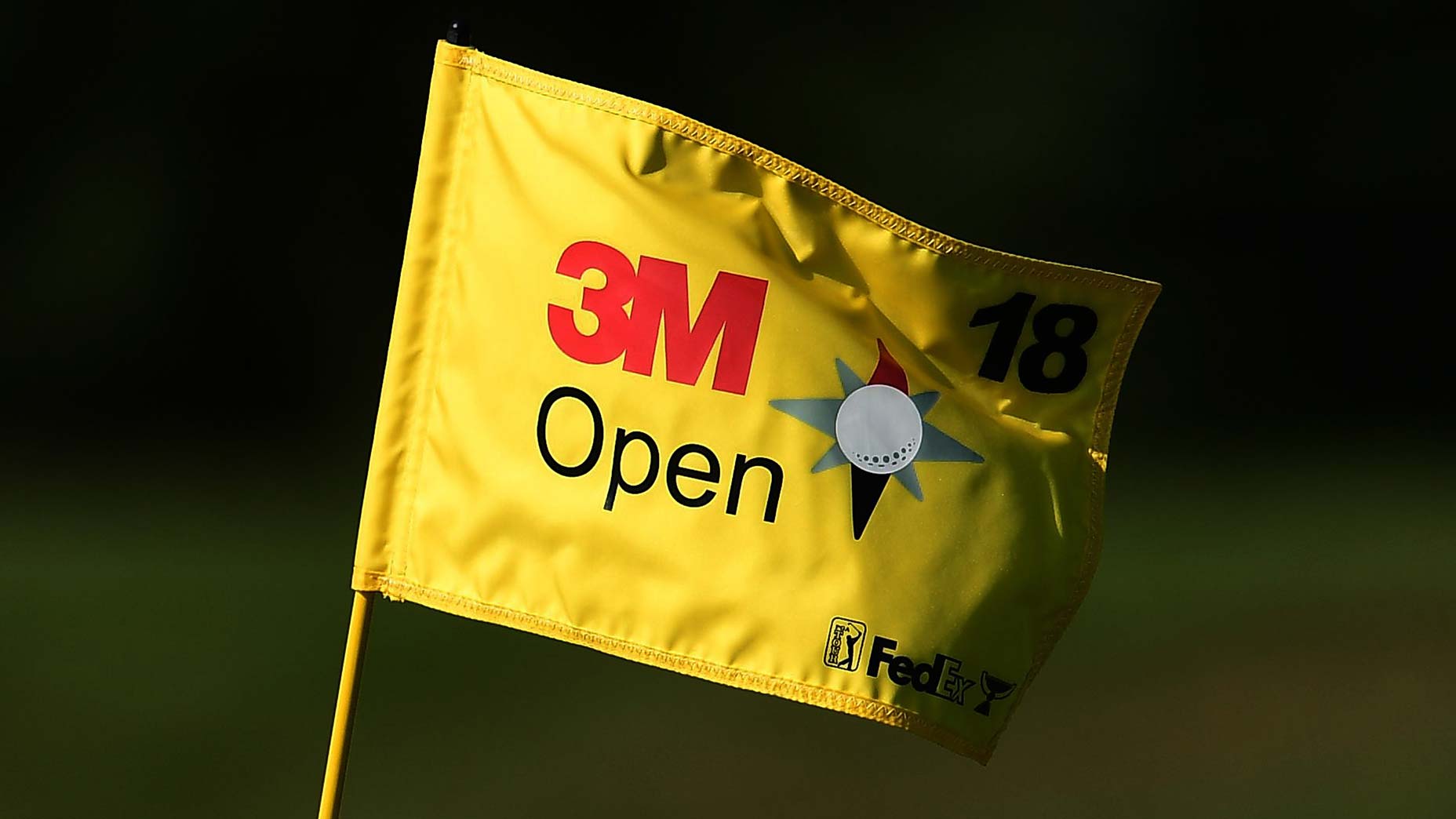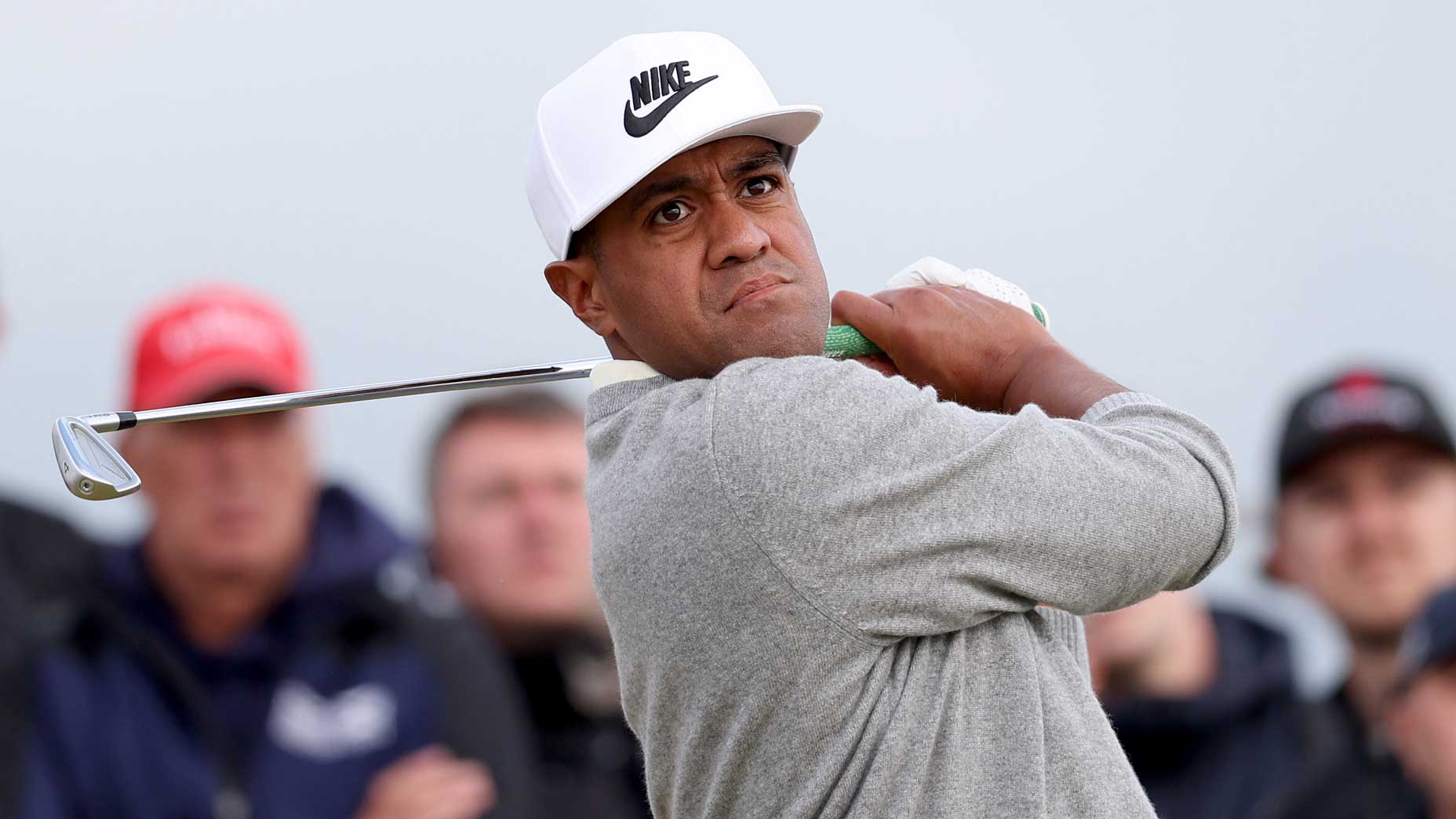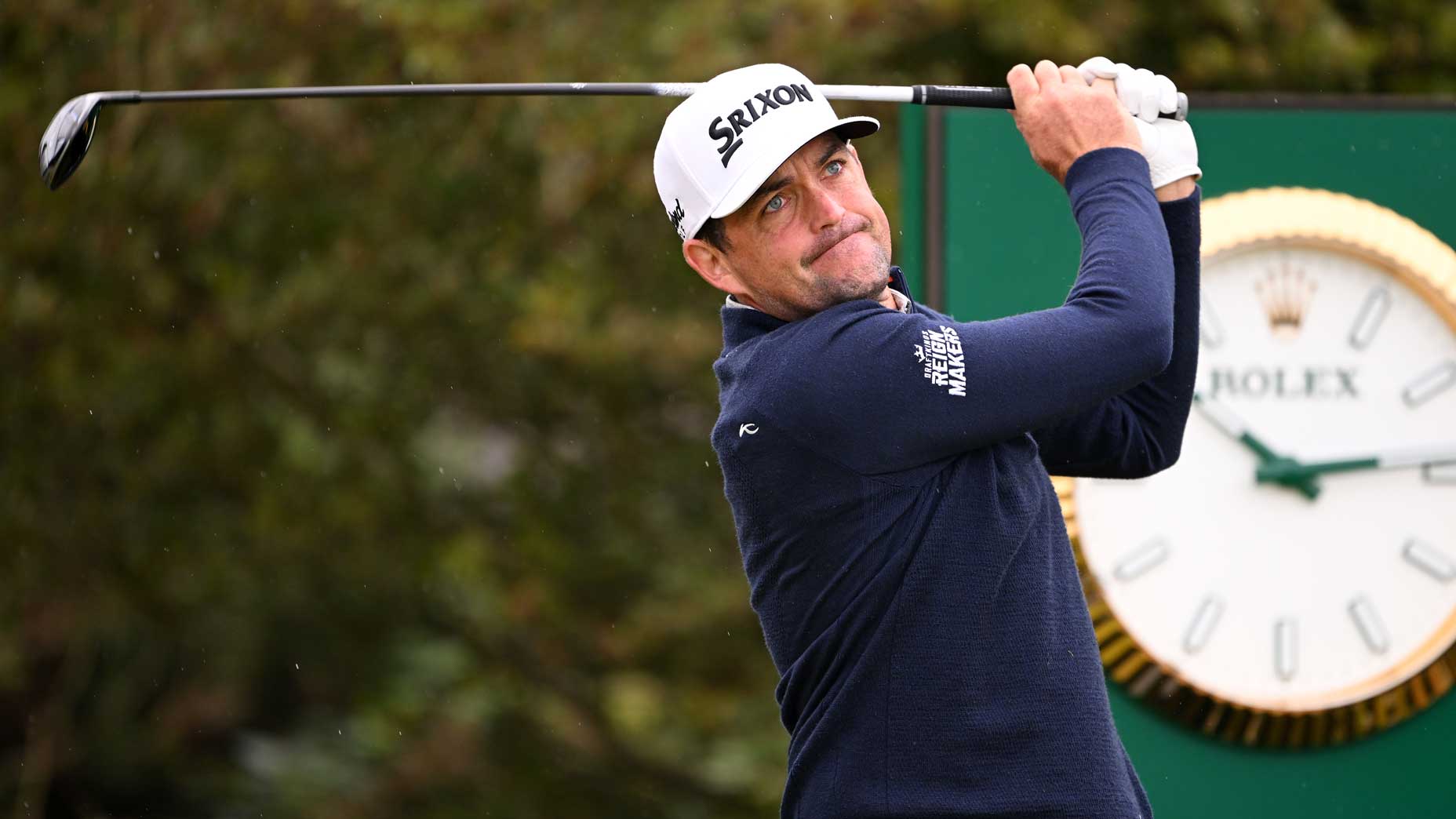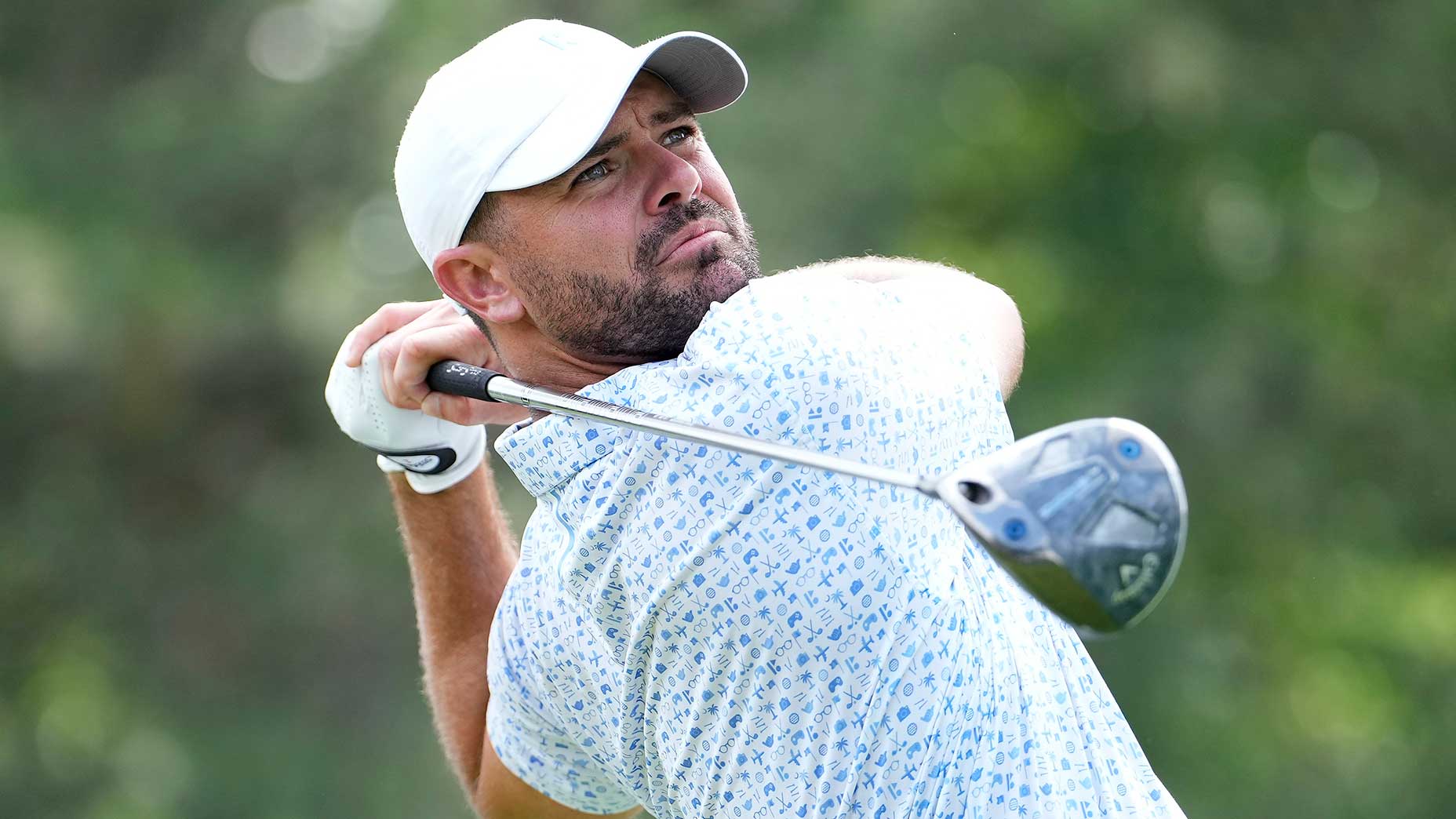Rory McIlroy’s LIV shift is about more than ‘opportunistic’ Jon Rahm
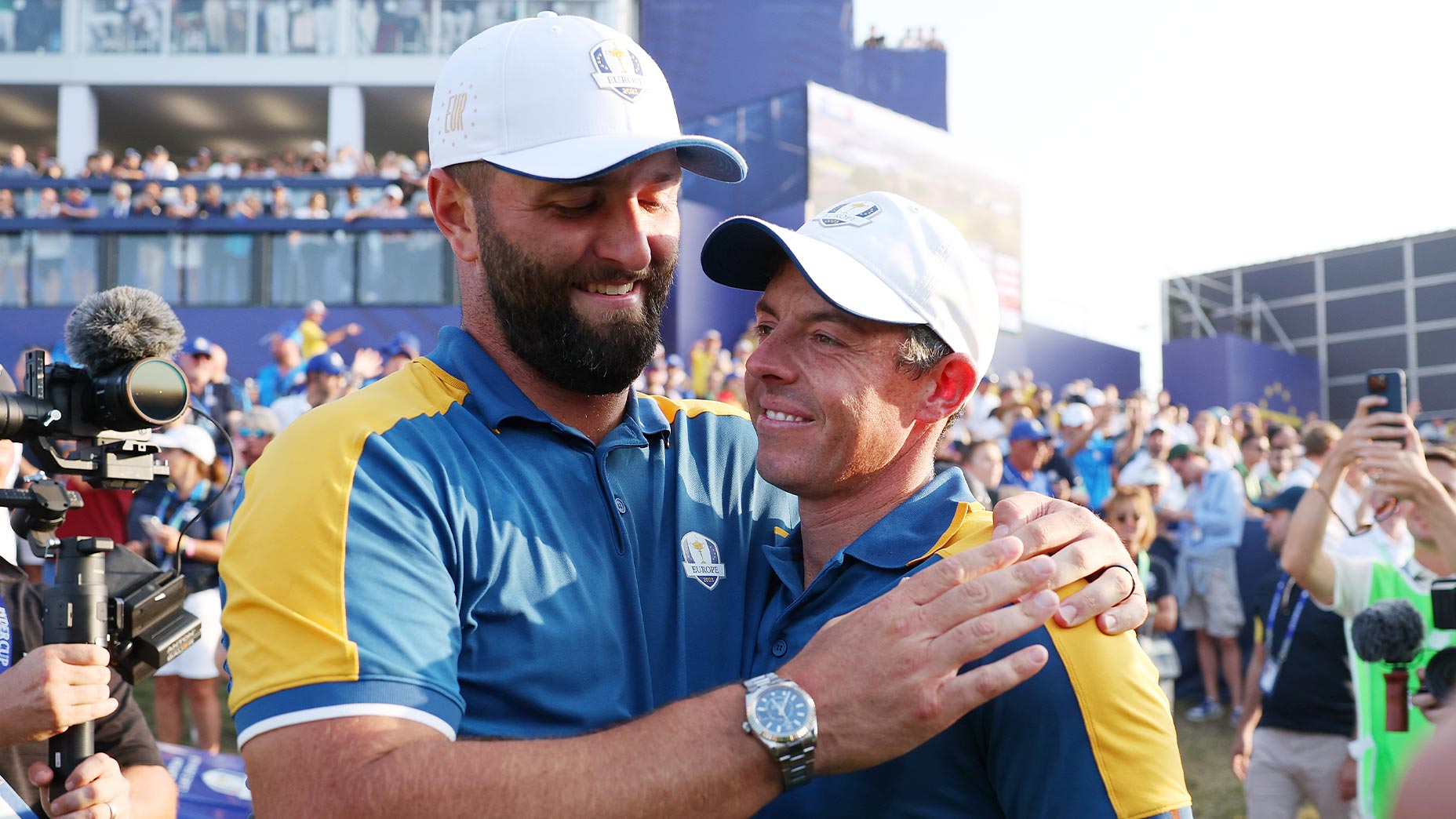
Asked about Jon Rahm's LIV departure — and the rival tour more generally — Rory McIlroy had some surprising words.
Getty Images/Patrick Smith
If nothing else, you’ve got to admire Rory McIlroy’s commitment. Just three days into the new year and he’s already turned over a new leaf.
Yes, the first words out of McIlroy at the start of the 2024 golf season represented a commitment to a New Year’s Resolution that might have sounded impossible just a few months earlier — and a change of tune few people could’ve predicted. In an appearance on Gary Neville’s The Overlap, McIlroy shifted his stance on Saudi involvement in pro golf, defending Jon Rahm’s “opportunistic” decision to join LIV Golf and showing remorse for his attitude toward the Saudi-backed league in the two years since its founding.
For McIlroy, the interview served as a mea culpa of sorts, an opportunity to cleanse himself of his role in what has been a deeply divisive time in pro golf. But for those who have been listening to McIlroy speak over the last 24 months — a time in which he has repeatedly attacked Saudi golf involvement on any number of moral and ethical grounds and in which he has even gone as far as to say he “hates” LIV Golf — his words landed to the golf audience with roughly the same believability as a hostage video.
Below, with light editing for clarity, are the big hits:
— “I was maybe a little judgmental of the guys who went to LIV Golf at the start. I think it was a bit of a mistake on my part because I now realize that not everyone is in my position or in Tiger Woods’ position.”
— “I’ve gone through the last two years with this altruistic approach where I’ve looked at the world the way I’ve wanted to see it. Ultimately, you can say what you want and do what you want, but at the end of the day, you’re not going to be able to change people’s minds. You’re never going to make them decide based on what you say.”
— “I think what LIV has done, it’s exposed the flaws in the system of golf … I think what LIV and the Saudis have exposed is that you’re asking for millions of dollars to sponsor these events, and you’re not able to guarantee that the players are going to show up. I can’t believe the PGA Tour has done so well for so long.”
— “I wouldn’t say I’ve lost the fight against LIV, but I’ve just accepted the fact that this is part of our sport now.”
Stunning, yes, almost incredible. Until you consider the context.
Context No. 1: McIlroy has, for some time now, embarked upon a public retreat at least partly to avoid being a subject of divisiveness. It started at the PGA Championship in May, when he declined to participate in pre-tournament interviews and enforced strict limits on the number of questions faced during tournament play, and it has continued ever since. He has respectfully rejected questions about the state of LIV and the PGA Tour. He has sidestepped landmines placed by other players and rivals. His podcast interviews and other extracurricular media appearances — this article’s context notwithstanding — have noticeably decreased. Perhaps Rory, whose career has been marked by his rare capacity for introspection and unblinking self-examination, has realized that he is better served participating in those activities away from the limelight. Perhaps his introspection and self-examination showed the behavior of the last 24 months (while virtuous) was disproportionately self-destructive. In either case, his step away from golf’s culture wars has dramatically reduced his own propensity for being exalted (or excoriated) as a spokesman for the PGA Tour, and has allowed him to acknowledge his life has more important callings than a bruising conflict he maintains little control over. Which brings us to…
Context No. 2: McIlroy is no longer in control of his own future. For a long time it seemed as though McIlroy and Woods and the rest of the PGA Tour would be responsible for blazing the path forward, effecting change and making important decisions. (To some extent this is still true: the PGA Tour’s player directors maintain absolute authority to veto any decision that comes from Tour leadership.) But the events of the last two years have shown that Saudi involvement in golf at all levels is an inevitability. The Public Investment Fund’s $700 billion war chest, the Kingdom’s image-cleansing and modernizing goals, and the existence of LIV Golf all point to the fact that the “Saudi Problem” is not going away. Meanwhile, the Tour’s ongoing (and apparent late-stage) negotiations with the PIF show even Rory’s leaders have taken a “get while the gettin’s good” approach. McIlroy may have any number of legitimate moral or ethical grounds for his concerns about the Saudis, but the fight for the future of pro golf is over, and continuing to rail against the opponents (who may soon also be underwriting his tournament checks) is poor form. Especially when some of those people aren’t even Rory’s opponents…
Context No. 3: It’s no longer only Rory’s enemies who are headed to LIV. Yes, Rahm’s departure for several hundred million dollars and one very strange letterman jacket revealed many things about the state of pro golf, but perhaps the biggest was that even golf’s so-called “good guys” could be bought. It was one thing for McIlroy to criticize the likes of Brooks Koepka, Phil Mickelson and Ian Poulter — three figures he has enjoyed less-than-chummy relationships with over the years — but it’s another entirely to train his ire at Rahm, a figure with whom McIlroy enjoyed a few prolonged moments of affection after a dominant performance at the Ryder Cup in September. The Cup solidified their relationship, which in some ways solidified Rory’s newly egalitarian approach toward the Saudis. With Rahm’s departure, suddenly the LIV decision wasn’t about right and wrong anymore — as even Rory admitted.
“I thought it was a smart business move from Jon – it’s opportunistic,” McIlroy told Neville. “I think he sees that things will come back together and he’s in a lucky position. There’s not one person that wouldn’t want him on our Ryder Cup team because of how good he is, so he was in a great position where there wasn’t a ton of risk involved for him to go. I’ve got no problem with him going if that’s what he wants to do and he thinks that’s the right decision for him and his family. Who am I to say any different at this point?”
Indeed, McIlroy appears to be an enlightened man. Does that mean he’ll soon be chasing a mega-contract of his own? Well, it might be wise to pump the brakes on that. While there are many intriguing qualities of Rory’s suddenly Zen approach to LIV, this author would stop short of calling his interview with Neville a full-throated defense of the Saudis. Rather, his words seem to be an acknowledgment of his present reality.
For Rory, fighting the good fight has taken two long years. He’s lost friends and relationships and no small chunk of his free time. Now there are far more important accomplishments to pursue — majors and legacies and Ryder Cup parking lot brawls — that reflect the best light of professional golf without forcing him into ethically choppy (and personally ruinous) waters.
This, it seems, is what McIlroy’s sudden reversal was really about. Not a change of opinion or loss in belief, but a war that dragged on for long enough to find himself on the battlefield alone. A “good fight” that suddenly became very bad.

